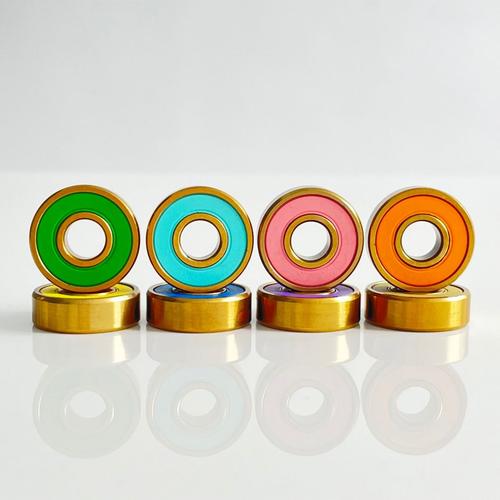Ultimate Guide to Corrosion Resistant Ceramic Bearings: Benefits, Applications
Introduction
In industries where extreme conditions prevail, corrosion resistant ceramic bearings have emerged as a game-changing solution. These specialized components combine advanced material science with precision engineering to withstand aggressive environments that traditional steel bearings cannot endure. This article explores the unique properties, applications, and selection criteria for corrosion resistant ceramic bearings, offering actionable insights for engineers and procurement specialists.
What Are Corrosion Resistant Ceramic Bearings?
Corrosion resistant ceramic bearings utilize zirconia or silicon nitride rolling elements within stainless steel or ceramic races. Unlike conventional bearings, they eliminate metallic contact points, ensuring immunity to rust and chemical degradation. This makes them ideal for applications involving saltwater, acidic solutions, or high-humidity environments.
Key Advantages of Ceramic Bearings
These bearings offer 80% less friction than steel variants, reducing energy consumption by up to 30%. Their non-conductive properties prevent electrical arcing, while thermal stability maintains performance from -40°C to 1,200°C. Most importantly, their corrosion resistance extends service life by 5-8 times in harsh conditions.
Industrial Applications
 From chemical processing plants to marine propulsion systems, corrosion resistant ceramic bearings excel in critical applications. They're widely used in pharmaceutical manufacturing (FDA-compliant versions), offshore wind turbines, and food processing equipment where sanitation and durability are paramount.
From chemical processing plants to marine propulsion systems, corrosion resistant ceramic bearings excel in critical applications. They're widely used in pharmaceutical manufacturing (FDA-compliant versions), offshore wind turbines, and food processing equipment where sanitation and durability are paramount.
Selecting the Right Bearing Type
Hybrid bearings (ceramic balls with stainless races) offer cost-effective corrosion resistance. Full-ceramic variants provide maximum chemical inertness for ultra-harsh environments. Consider load ratings (dynamic up to 14kN), speed limitations (up to 1.5 million dN), and lubrication requirements when specifying components.
Industry Trends
The global market for corrosion resistant ceramic bearings is projected to grow at 8.7% CAGR through 2030, driven by renewable energy expansion and stricter environmental regulations. Recent innovations include graphene-enhanced ceramics and smart bearings with embedded wear sensors.
Why Choose Our Solutions?
Our ISO 9001-certified facility produces corrosion resistant ceramic bearings with 0.1μm surface finishes for unmatched smoothness. Custom configurations available for unique operating conditions, backed by a 5-year performance guarantee.
FAQs
- Q: Can ceramic bearings handle heavy loads?
A: Advanced designs support radial loads up to 22kN while maintaining corrosion resistance. - Q: Are they compatible with standard housings?
A: Yes, most models match ISO dimension series for easy retrofitting.
Conclusion
Corrosion resistant ceramic bearings represent the pinnacle of reliability in demanding industrial applications. Contact our engineering team today to optimize your equipment's performance and longevity.




 13869596835
13869596835